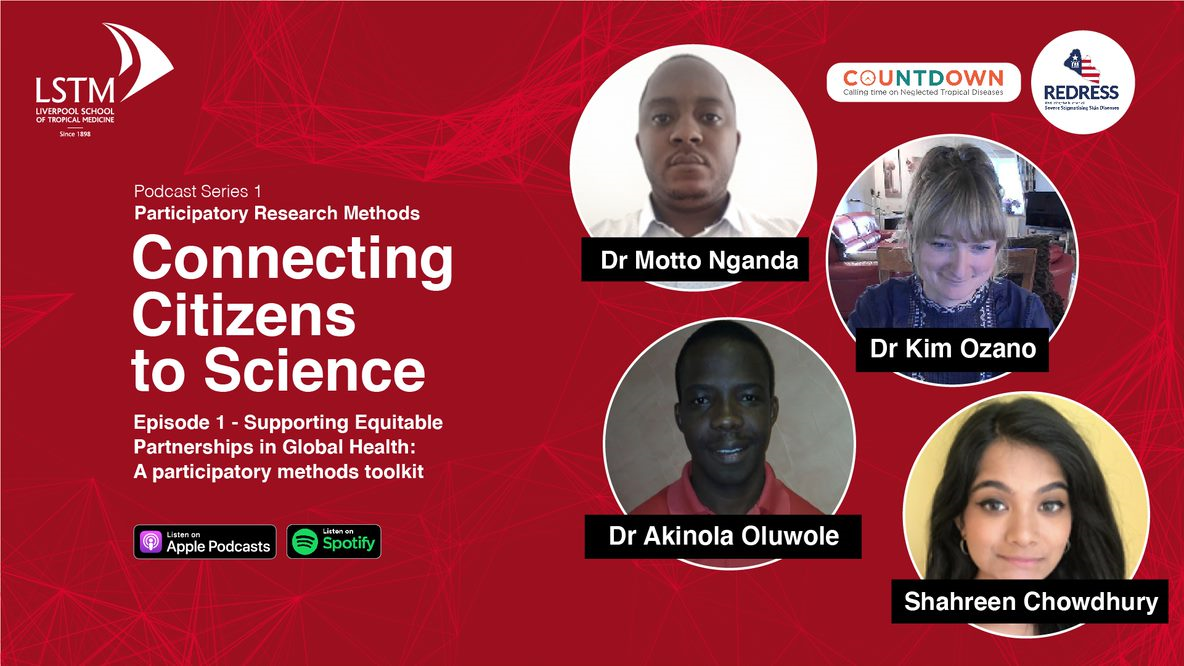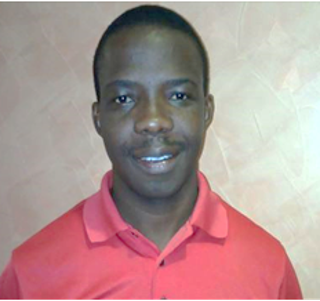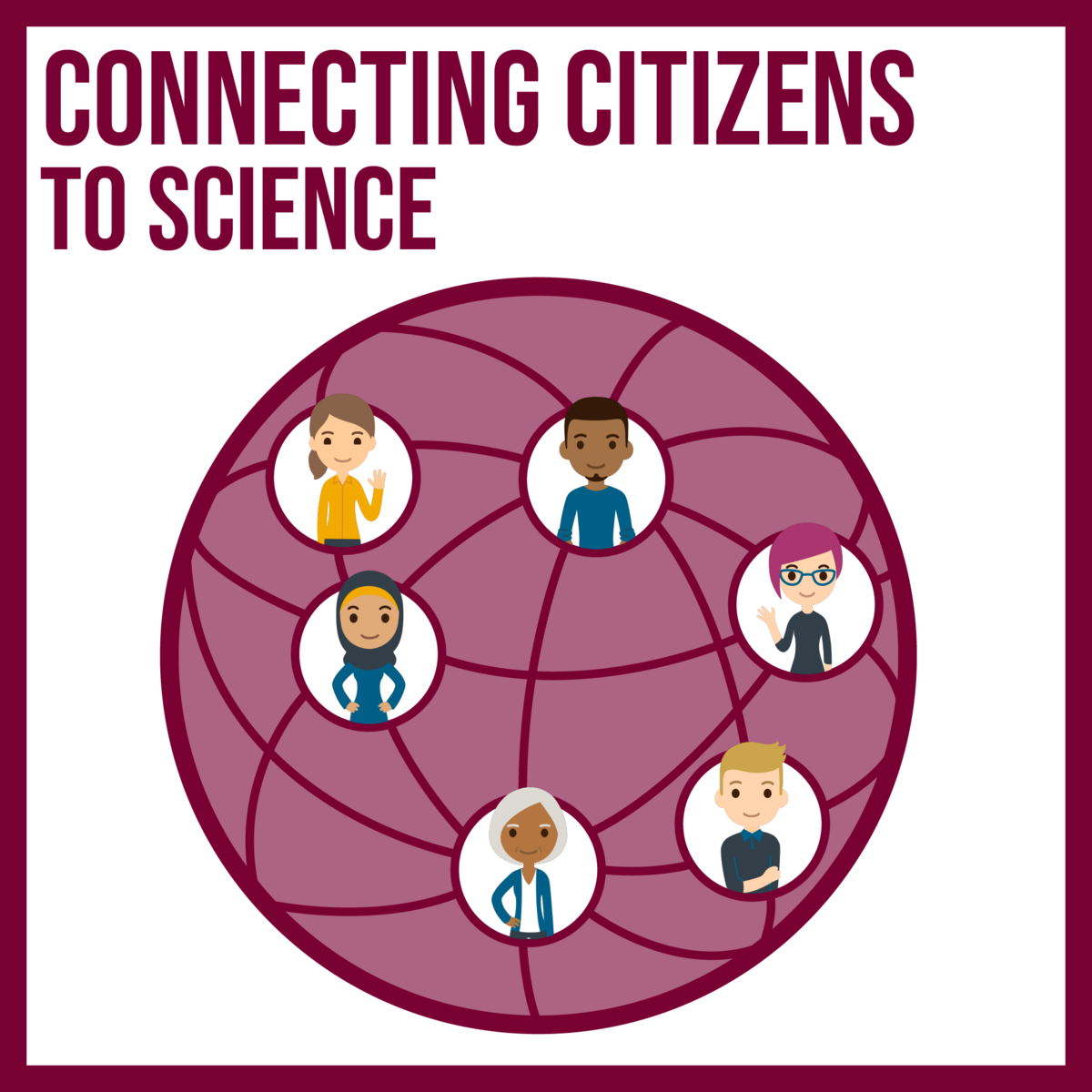
In this episode we talk to Shahreen Chowdhury and Motto Nganda about their toolkit for participatory health research methods “Supporting Equitable Partnerships in Global Health”. This toolkit presents a whole host of methods which can be used and adapted to connect with communities.

This episode is co-hosted by Akinola Oluwole
Biographies
Shahreen Chowdhury, Research Assistant, LSTM
Shahreen has a background in Geography and Public Health, with a keen interest of looking at health through a social science lens and using participatory approaches to research. She completed her MPH (Masters in Public Health in International Development) at the University of Sheffield. Prior to starting at the Liverpool School of Tropical Medicine in 2019, Shahreen has varied local and international NGO experience in diverse settings - including Tanzania, Uganda and World Vision on maternal health and WASH. As a research assistant at LSTM, Shahreen works within the COUNTDOWN and REDRESS consortiums on implementation research to support the development of more inclusive health systems in Nigeria and Liberia, with a focus on equity and disability inclusion. Shahreen has a range of experience of planning, implementing and evaluating qualitative and participatory research methods to develop community level inclusion programmes on neglected tropical diseases, which result in lifelong morbidity and disability. Since September 2021, Shahreen has started a PhD on psychosocial disability in fragile urban settings. Her areas of interest include disability inclusion, mental health, gender, equity and strengthening health systems.
Dr Motto Nganda is a public health professional and medical doctor with over six years’ experience in the management and implementation of public health disease programmes, including Neglected Tropical Diseases (NTDs), Malaria, Tuberculosis and HIV/AIDS; as well as clinical practice in primary health care in Cameroon. Motto also has experience in implementation research, community engagement in health and health systems strengthening in the fields of household air pollution and Neglected Tropical Diseases in low and middle-income countries including Cameroon, Nigeria, and Liberia. Recently, Motto joined the COUNTDOWN consortium at the Liverpool School of Tropical Medicine, a 7-year multidisciplinary research consortium dedicated to investigating and scaling up cost effective and sustainable solutions to control and eliminate neglected tropical medicines in Low- and Middle-income countries. Motto has applied participatory health research approaches and methods to strengthen the capacity of health systems actors and local communities to develop, implement, evaluate, and embed interventions to diagnose, treat and manage women and girls suspected of female genital schistosomiasis at primary healthcare level; and to decentralise planning, management, and implementation of mass drug administration of medicines in Liberia. Motto has increasing interest in strengthening fragile health systems and supporting community health, to contribute to the WHO’s universal health coverage roadmap.
Dr Akinola Oluwole is an experienced researcher with a special interest in socio-epidemiology of tropical infectious diseases. His multidisciplinary expertise includes spatial disease mapping, monitoring and evaluation of intervention and control programmes and implementation/Health systems research for public health and disease control. He has over Fifteen years’ experience working on Neglected Tropical Diseases (NTDs). Recently, Dr Akinola was the programme lead for two Co-production research projects within the COUNTDOWN consortia, one to develop a care package for Female Genital Schistosomiasis and a second to improve the equity of mass drug administration in Nigeria. Both projects utilized innovative Participatory Health Research methods to generate evidence-based information on how to effectively tackle implementation challenges for NTD programme in Nigeria. Dr Akinola has strengthened the capacity of health systems actors, NTD implementers and researchers through training, mentorship and the development of practical guidelines and policy. He is passionate about influencing policy change in Nigeria and Internationally to reduce inequities created by NTDS within the poorest communities.

This is a podcast in the series: Connecting Citizens to Science, which focuses on health research based on equitable partnerships between researchers and communities.